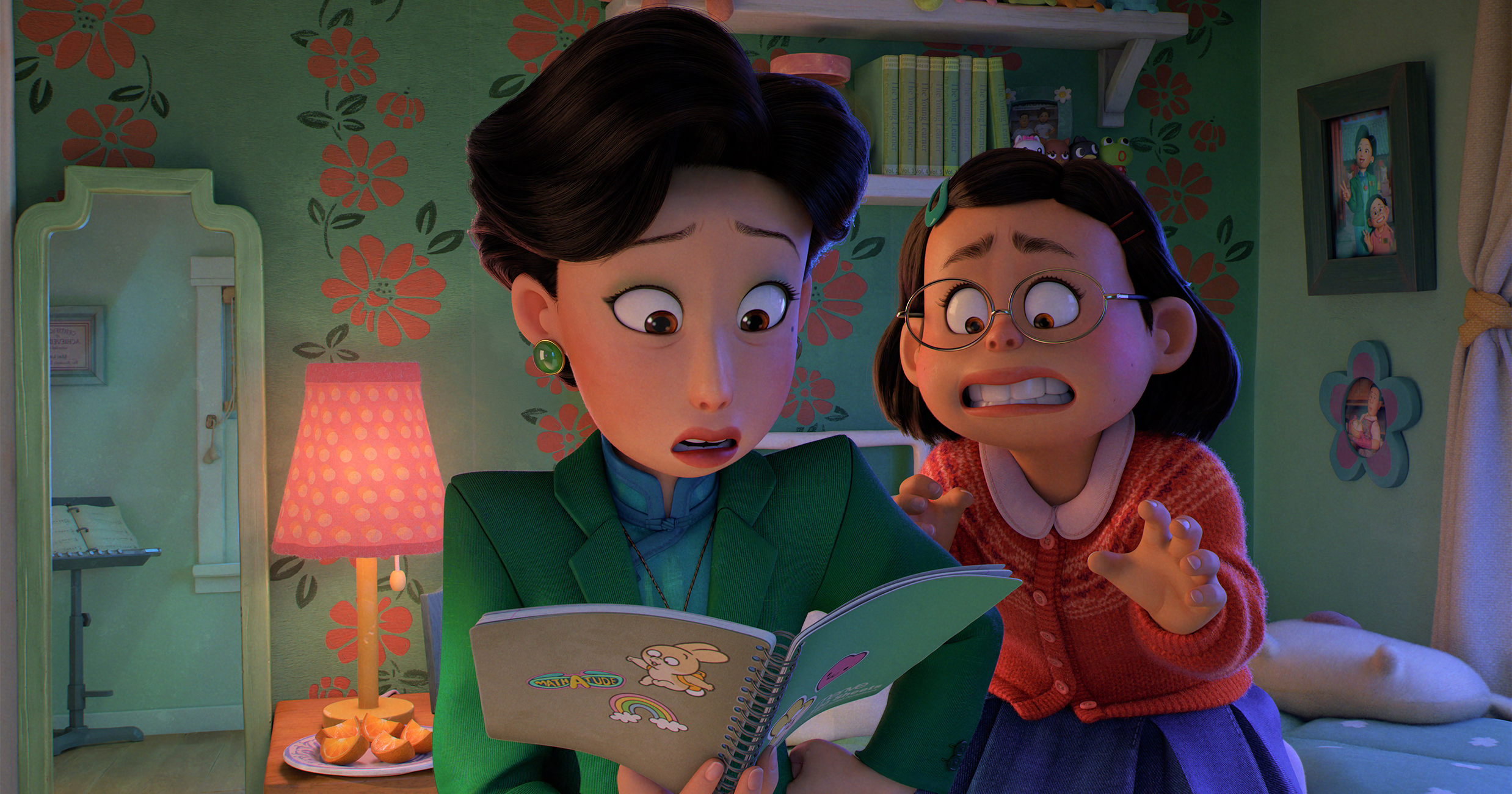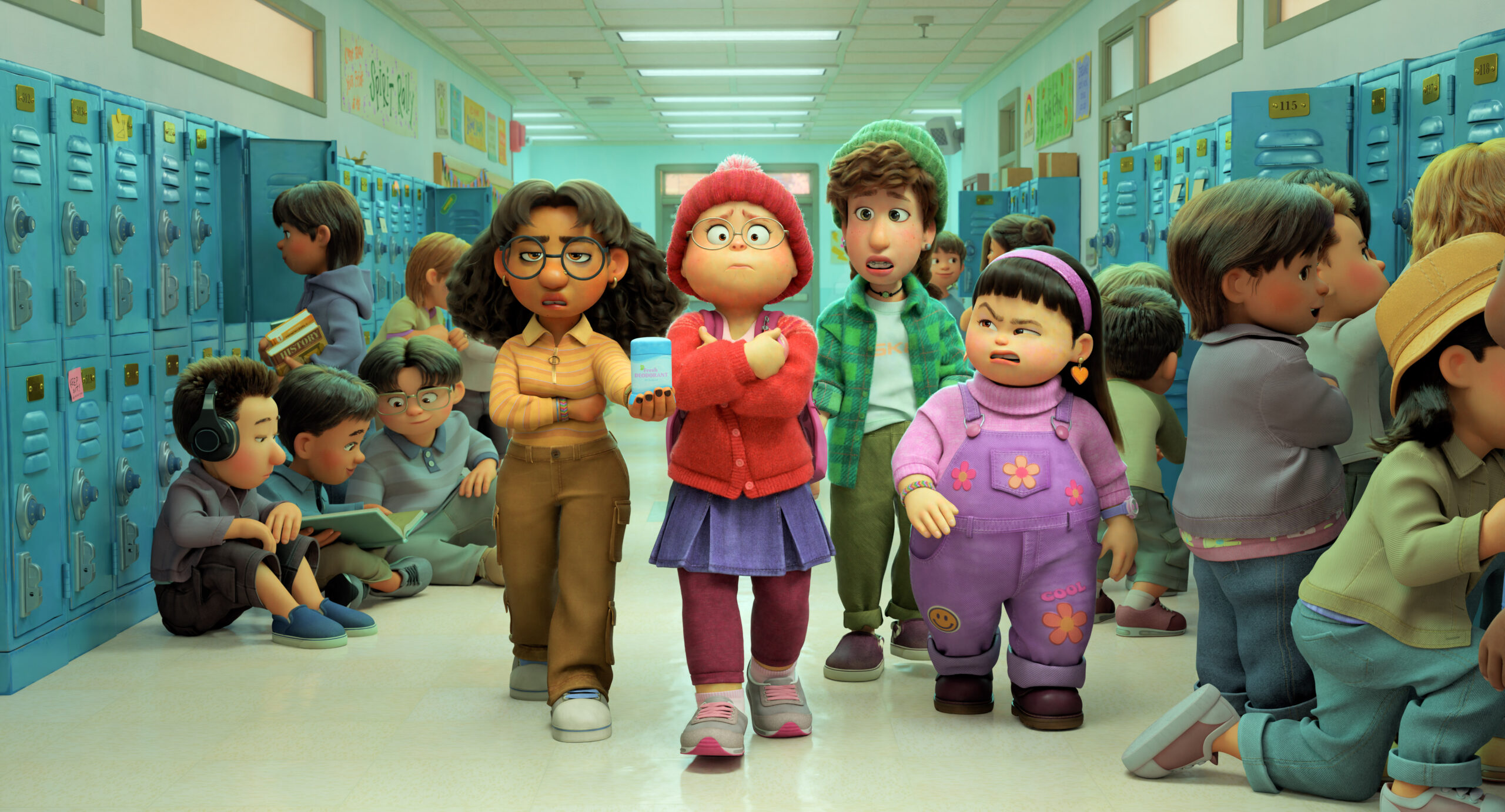
Disney and Pixar's Turning Red is the newest addition to the coming-of-age genre of movies, following the animation studio's first contemporary tween protagonist, Mei Lee, as she navigates the changes and milestones of her early teen years. Turning Red tackles these topics in an authentic way without losing the heart and humor of this universal experience.
The film tells a story through Mei Lee's perspective as she deals with the changes to her body, her relationship with her mom, and her friends as she blossoms into adulthood. Her unique struggle during this already complicated time centers on the fact that every time Mei Lee experiences a strong emotion, she poofs into a giant red panda. This unique challenge is a metaphor for the other pivotal big red moment in a young girl's life — her first period — a topic that is still very taboo for multicultural families. The red panda transformation showcases the scary, sudden and sometimes isolating experience of puberty.

The film offers a perspective on how culture and parenting affect young teens learning to navigate their quickly changing physical and mental world. Puberty, an often untouchable topic in tight-knit strict Hispanic households, is often glossed over or completely overlooked along with the important conversations about these changes.
Below are three tips to help make this transition easier for parents who are facing this delicate time with their pre-teens.
1. Always keep a line of open communication
One of the most crucial takeaways from Turning Red is the importance of understanding and listening to your kids in order to build trust and maintain open communication. The mother-daughter relationship we see between Mei Lee and her mom, Ming, in the movie shows us how listening can ease the tension between a parent and their child during this tumultuous time. Parental guidance throughout this period is important, so making sure there is two-way communication between you and your teen is key. When it comes to physical changes, especially for young girls, getting your first period can be a moment of fear, confusion, and embarrassment in the eyes of teenage girls. This, along with all the new emotions arising from sudden intense crushes or new friend groups, can be isolating, and is when a girl most needs her mother. In a Hispanic household especially, parents usually shy away from topics like menstruation. In not talking about it, it forces teens to deal with these things on their own, making puberty even more confusing. By welcoming conversation around the physical and mental changes typical of teen years and reminding teens that these changes are normal, you'll be making a world of difference for your child during this pivotal time.
2. Provide guidance and support while letting your teen find their own sense of individual identity

It's important for parents to offer emotional support and guidance while recognizing and accepting that as kids ease into adolescence, they'll want to form their own opinions, have more independence, and find their sense of individual identity. Make sure to avoid making them feel silly or ridiculed by a sibling as they feel out their new interests, explore new hobbies, or get slightly obsessive or overly passionate about a new crush or pop culture phenomenon. This can trigger feelings of isolation, so it's important to make them feel supported. Remember your first favorite boy-band obsession or random tween hobby, and let them know that it's normal. As your child finds their own sense of style, you'll need to be willing to let go — so be ready to say goodbye to the unicorn print clothes you once bought your daughter, and say hello to the rebranding that's headed your way! Letting your kids find their own look can be scary, but the balance of accepting their new favorite colors or hairstyle while keeping your values and rules clear will keep them from wanting to rebel completely, and will help strengthen your bond.
3. Prepare your tweens and have conversations early on

The earlier you can initiate a conversation around puberty, the less of a shock and surprise it will be once the time comes. Try to have a conversation with your daughter even before her first period arrives. Having period supplies ready and available as well as making sure they know how to use them will ease the fear and ensure that she's prepared and ready to handle the bodily changes coming her way and comfortable enough to come to you with any questions.
Parenting is never easy, especially when your child is finding their own way in the world. Making sure you have established your role as a supportive parent while also giving them freedom and independence to find who they are can be tricky, but with a little bit of patience, it's possible.
The story of Mei Lee's journey serves as a relatable guide for multicultural families on how to navigate the teenage years and how strong relationships with your kids can help shape your teen's own coming-of–age story. Be sure to watch Turning Red on Disney+ this March 11.



